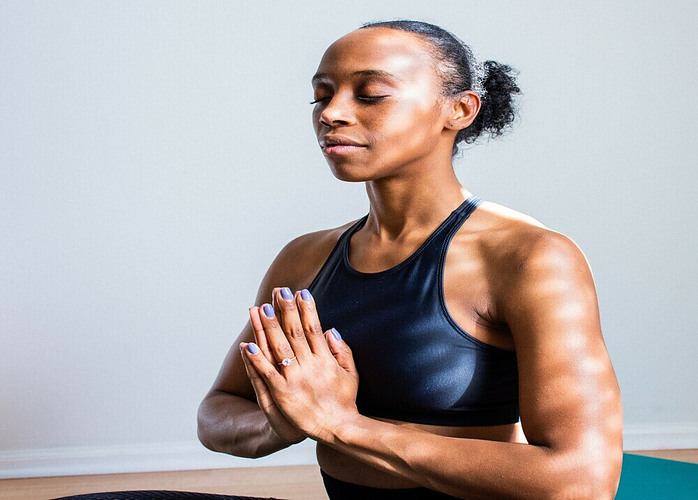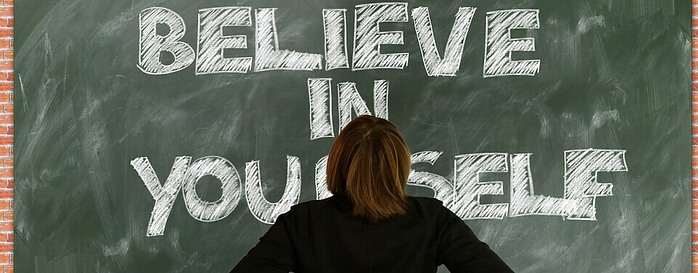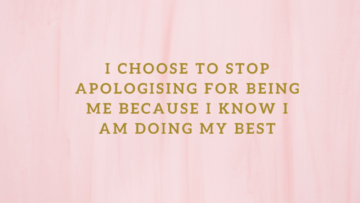
I remember years ago when I was researching how to better take care of myself and I came across a lot of suggestions focussing just on the external. I was disappointed. After all, I couldn’t relate to a lot of the things, first of all, because I wasn’t in the right headspace and secondly, I didn’t particularly enjoy or have the means for some of the activities.
This got me to come up with my ways of taking care of myself and little did I know that was the way to go and that my self-care was an important part of my developing my self-worth.
However, self-care has become a popular topic in recent years, with increasing awareness of the importance of taking care of our physical and mental well-being. It is not just a passing trend; self-care is a fundamental aspect of building our self-worth.
When we prioritise self-care, we invest in ourselves and cultivate self-love and self-esteem which are all tied into our sense of worth. In this article, we will explore why self-care is crucial for building self-worth and provide practical tips for incorporating self-care into our daily lives.

Understanding Self-Care as a Holistic Investment
Self-care encompasses various activities and practices that promote our overall well-being. It involves taking care of our physical health through exercise, nutritious and mindful eating, and adequate sleep.
In addition, self-care involves nourishing our minds and emotions, engaging in activities that bring us joy and fulfilment, which will be different for each of us; and replenishing our energy. It is a sustainable and holistic investment in our minds and bodies.
The Link Between Self-Care and Self-Worth
Self-care and self-worth are intrinsically connected in that we cannot practice one without nurturing the other. When we prioritise self-care, we send a powerful message to ourselves that we are deserving of love, care, and attention. It is easy for us to spend time and money on loved ones whilst neglecting our own needs.
Self-care is an act of self-respect and self-compassion. By taking time to meet our needs and engage in activities that bring us joy, we reinforce a positive self-image and build a foundation of self-worth.
I remember when I would always say yes to things even when I didn’t have the energy or time for it, just to please others and I would end up indirectly disrespecting myself on so many levels. I put others’ needs before mine but when I learnt that taking care of myself involved both my mental and physical wellbeing, I started acknowledging my needs and setting boundaries.

The Importance of Self-Knowledge
This meant getting clear on my values and what I needed. One of the key aspects of self-care is self-knowledge. Understanding our true needs and what restores us is essential in the self-care journey.
As already mentioned not everyone will resonate with the very common examples of self-care so it is important to know what it is in particular that lights each of us up. What works for one person may not work for another, so it is crucial to reflect on our unique and specific set of self-care activities. We can do this by doing some self-reflection to identify our self-care needs.
Cultivating Positive Self-Talk
When it comes to self-care one other core component is managing our self-talk, learning how to be gentle and kind with our words to ourselves. Our inner voice can either make or break us.
Most of us have an inner critic as our default, this can be draining and destructive, undermining our self-worth so, we must catch ourselves whenever we think mean thoughts. It is essential to cultivate a kinder, more compassionate voice within ourselves; the same type of voice we would use with a loved one.
Being able to detect these inner voices depends very much on self-awareness which when coupled with self-compassion becomes a central feature of how we take care of ourselves. There are many aspects and ways to cultivate taking care of ourselves so let’s explore a few here.
Practical Tips for Prioritizing Self-Care

Conduct a Self-Care Checkup
As we have touched on, self-awareness is key as we cannot change what we don’t acknowledge, so the first thing is to take an inventory of your current self-care practices.
You can create a self-care checkup that assesses your existing physical, psychological, social, spiritual, and professional self-care routine. This will provide insight into areas that require attention and help prioritise your self-care needs.
Practice Self-Compassion
I found this practice quite cathartic when I started writing myself letters. It started with me trying to forgive myself and others for my traumatic experiences and I experienced that as I wrote and released I felt lighter and more understanding of myself.
Write a letter of self-compassion to remind yourself to be more forgiving, accepting, and caring towards yourself. Acknowledge that you are often too hard on yourself and deserve compassion, just like anyone else.

Reflect on Your Inner Dialogue
It is very true that words have power and if you don’t see how this is true just pay attention to whenever you tell yourself something like – I am so clumsy, just watch how many things you trip over or spill or break to confirm this.
One thing I have worked so hard at and never do to myself is, insult myself inwardly. Even when my body doesn’t look as I want and expect I never say nasty things to and about myself.
Don’t get me wrong I do get those self-doubting thoughts sometimes where I might think that I am not qualified or deserving of something but the moment I realise this I switch to my inner cheerleader.
Pay attention to your self-talk when you are struggling. Notice any critical voice or phrases that bring you down and practice reframing these observations in a friendlier, more positive way. Once again, treat yourself with the same care and kindness you would offer a friend in need.
Create a Self-Care Vision Board
One other fun way I have had and is also a form of self-care in itself is finding the time to imagine and dream of the type of person you want to be. As Albert Einstein once stated – “imagination is a preview of life’s coming attractions.” Take time to plan your self-care routine or ritual and if need be engage in a creative exercise by creating a self-care vision board.
Use images, words, and photographs to represent positive self-care activities. Brainstorm a list of activities you already enjoy and those you would like to develop. Place the vision board in a prominent place as a reminder of the great things you can do to take care of yourself. We often think of vision boards in achieving the physical manifestations of our desires but we can use them to also manifest our mental and emotional well-being.
“Self-care is not selfish. You cannot serve from an empty vessel.” – Eleanor Brownn

Establish a Self-Care Contract
Self-care is self-respect and respecting ourselves means keeping our promises to ourselves. Since our self-care is to be a priority I suggest that we establish a contract with ourselves.
Create a simple self-contract this not be anything complicated but your promise to yourself to reaffirm your commitment to self-care. This is to identify times when you may be vulnerable to neglecting self-care and develop an “if-then” plan to overcome obstacles. Include a re-affirming mantra to remind yourself to treat yourself compassionately.
Example. if you are looking at building a mindful journal ritual your contract can look like this:
I (insert your name) promise to spend 30 minutes every day before bed, off my phone and doing my gratitude ritual. If I fail to do this 2 nights in a row then I have to write an apology letter to myself explaining why not keeping my promise to myself is disrespecting myself.
Differentiate Nurturing and Depleting Activities
Some activities we are so involved with are hard to identify as energy vampires but they end up leaving us so drained and sometimes feeling sorry for ourselves.
One such activity is continuously scrolling on social media platforms seeing all that we are missing out on. Becoming more aware of activities that enhance or deplete your mood and energy is one great way to take care of ourselves.
List your daily tasks and activities, then determine whether each activity is nurturing or depleting. Reflect on the balance between the two and find ways to incorporate more nurturing moments and activities into your life.
Like, if social media is that important then set a timer for how long you should be on and then after said time get off and do something else.

Enhancing Emotional Intelligence
Lastly, this one takes time but with constant practice and awareness we can master it. Our emotional intelligence plays a significant role in self-care and building our self-worth.
It involves understanding our emotions, our control of self, being empathetic, and having an awareness of our emotional processes – how we feel, why feel what we feel and what our triggers are etc.
Sometimes, I have had to stop myself in the middle of an anxious state and ask the question – where is this coming from, why am I thinking these thoughts? Are they true?
Asking myself these questions leads me to find the root cause of an emotional state and then I can challenge the thoughts. When we are able to nurture our emotional intelligence, we can gain greater self-mastery and improve our ability to care for ourselves.
Take home message
Our holistic well-being depends on the right balance between both our physical and mental well-being. Prioritising our self-care is essential for building self-worth. When we invest in our physical and mental well-being, by practising self-compassion, positive self-talk, and understanding our unique needs, we cultivate self-love and build self-esteem.
Incorporating self-care activities into our daily lives is a powerful way to reinforce our self-worth and nurture our overall well-being. It is worth noting that self-care is a personal journey, and not everyone will resonate with everything, so find what works best for you and make it a priority. I would love to know what you do to take care of yourself or if these tips have helped so please share your thoughts in the comments.
Love & Light
Sheila Daisy




